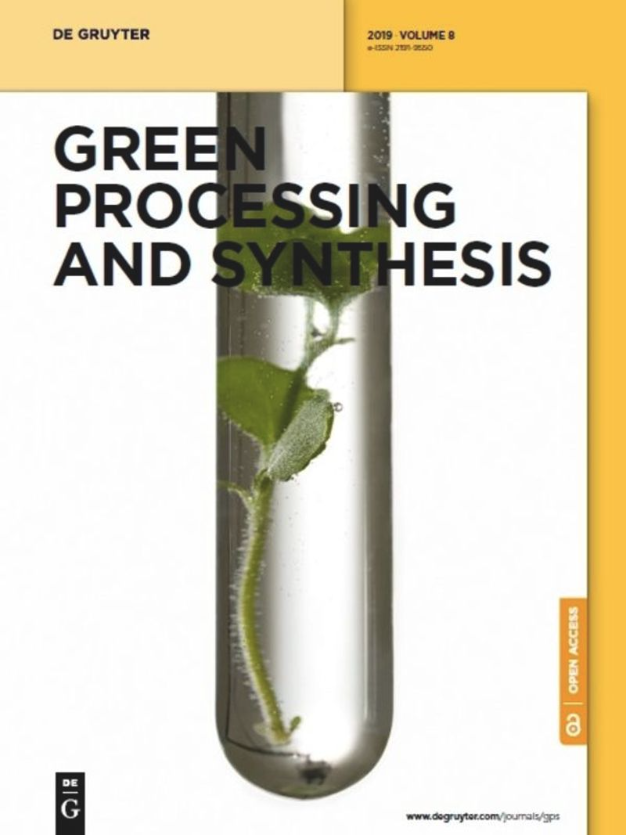天竺葵叶介导的纳米银合成及其对白色念珠菌的转录组效应
IF 3
4区 工程技术
Q2 CHEMISTRY, MULTIDISCIPLINARY
引用次数: 2
摘要
摘要白色念珠菌是从医疗器械中分离出来的最主要的真菌,包括导管、心脏瓣膜和假牙。近年来,它已被证明对许多抗真菌药物具有耐药性;因此,银纳米粒子(AgNPs)已被提议作为一种替代方案。但只有少数研究参与了基于组学的研究,以研究AgNPs对念珠菌和其他微生物的各种影响。因此,本研究旨在利用短叶天竺葵叶生物合成AgNPs,并通过转录组学分析测试其对念珠菌的抗真菌、细胞毒性和全局基因表达。叶片辅助的AgNPs形成了粒径为38的球形 nm。抗癌作用表明,最小抑制浓度为25 μg·mL−1。随后,细胞毒性试验报告对人牙龈成纤维细胞有中度影响。最后,转录组学分析显示3871个上调基因和3902个下调基因的差异基因表达。因此,通过RNA-seq实验和调控基因证明AgNPs对念珠菌的抗癌作用对细胞壁完整性、粘附性和毒力非常重要。本文章由计算机程序翻译,如有差异,请以英文原文为准。
Geranium leaf-mediated synthesis of silver nanoparticles and their transcriptomic effects on Candida albicans
Abstract Candida albicans is the most predominant fungal species isolated from medical devices, including catheters, heart valves, and dental prostheses. In recent years, it has been demonstrated to be resistant to many antifungals; therefore, silver nanoparticles (AgNPs) have been proposed as an alternative. But only a handful of research is contributed to omic-based studies to study the various impacts of AgNPs on Candida species and other microorganisms. Thus, the study aims to biosynthesize AgNPs using Pelargonium-hortorum leaf and test its antifungal, cytotoxicity, and global gene expression on Candida through transcriptomic profiling. The leaf-assisted AgNPs resulted in spherical shapes with a particle size of 38 nm. The anticandidal effect demonstrated that the Minimum inhibitory concentration was 25 μg·mL−1. Later, the cytotoxicity assay reported a moderate impact on the human gingival fibroblast cells. Finally, the transcriptomic analysis demonstrated the differential gene expression of 3,871 upregulated and 3,902 downregulated genes. Thus, proving the anticandidal effect of AgNPs on Candida through RNA-seq experiments and the regulated genes is highly important to cell wall integrity, adherence, and virulence.
求助全文
通过发布文献求助,成功后即可免费获取论文全文。
去求助
来源期刊

Green Processing and Synthesis
CHEMISTRY, MULTIDISCIPLINARY-ENGINEERING, CHEMICAL
CiteScore
6.70
自引率
9.30%
发文量
78
审稿时长
7 weeks
期刊介绍:
Green Processing and Synthesis is a bimonthly, peer-reviewed journal that provides up-to-date research both on fundamental as well as applied aspects of innovative green process development and chemical synthesis, giving an appropriate share to industrial views. The contributions are cutting edge, high-impact, authoritative, and provide both pros and cons of potential technologies. Green Processing and Synthesis provides a platform for scientists and engineers, especially chemists and chemical engineers, but is also open for interdisciplinary research from other areas such as physics, materials science, or catalysis.
 求助内容:
求助内容: 应助结果提醒方式:
应助结果提醒方式:


